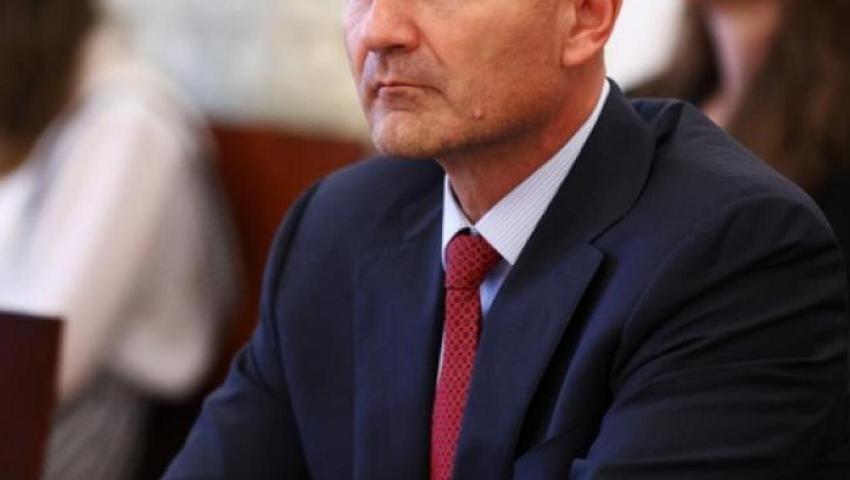Rosen Hristov: The Ministry of Energy is working on models for switching to low-carbon energy, without closing the coal-fired thermal power plants in 2026

Source: BTA, archive
The Ministry of Energy is working on models for the transition to low-carbon energy in our country, which will provide an opportunity to reduce the emissions set by the European Commission, but at the same time not lead to the closure of coal-fired power plants. In particular, it is about the TPPs in the Maritsa basin. This was stated by the Minister of Energy Rosen Hristov in front of the people's representatives in response to a question by the MP Krasimir Valchev from GERB-SDS. Valchev raised the question of rethinking the commitment to reduce CO2 emissions, laid down in the Recovery and Sustainability Plan, so that the plants of the Maritsa East complex are not closed. He recalled the revenues generated by the thermal power plants and the huge employment.
The sustainable transition to low-carbon energy requires serious analyzes and careful planning, Minister Hristov pointed out in his answer. He explained, "at this stage, the modeling results show that it is possible to achieve the environmental goals with high ambition in terms of new RES capacity, energy storage systems, flexible natural gas capacity, without closing coal plants." The Minister of Energy committed that, based on the results of the models, the Ministry of Energy will further develop and propose to the National Assembly an "Integrated Energy Strategy for the Development of the Bulgarian Energy Industry, which will include long-term strategies and various energy scenarios to achieve the set goals aims.
The process thus described will ensure the development of the sector and selected priorities based on data, analysis and a scientific approach accepted by a wide range of stakeholders. Literally in the last few days we have had progress with scientific research. Last Sunday, at the President Rumen Radev's, we had a meeting with the scientific community in Bulgaria, where a geological analysis of possible areas to build underground pumping stations based on water or air, as well as potential storage for carbon dioxide and gas, was presented. During COP27, which is being held in Egypt again thanks to President Rumen Radev, we had a meeting with the Israeli president. They have such technologies and considerable experience in this field", Hristov pointed out and reported on the expressed "desire to provide this technology to Bulgaria, including investments from the Israeli National Electric Company".
"This morning I held meetings with the management of the two coal-fired power plants (TPP AES Maritsa East 1 and TPP Kontur Global Maritsa East 3), so we are intensively working in the direction you set - to reduce the carbon footprint of coal production and coal-fired power plants so that we can meet the targets set in the Recovery and Resilience Plan without reducing power capacity in 2026."
"I want to emphasize that the critical period here is precisely 2026 with the commitment to reduce carbon emissions by 40%. Our models show that after this date, in an absolutely natural way, energy consumption and production, and the gradual increase of RES sources allow us to smoothly transition to completely green electricity. For the year 2026, we are actively working to propose a package of projects that coincide with those set out in the Recovery and Sustainability Plan, but will not lead to the closure of capacities. The task is technically extremely complex, but thanks to the fact that we have introduced scientific circles and the private sector, the ministry and absolutely all interested parties, including trade unions, I believe that we will be able to cope with this challenge", pointed out Rosen Hristov.
People's representative Krasimir Valchev, for his part, warned that the deadline until 2026 is too short and there is a danger that our country will become an importer of electricity. . "We have preserved the competitiveness of the Bulgarian economy, thanks to the fact that we have the Kozloduy NPP and coal-fired power plants," he recalled and once again drew attention to the criteria laid down in the Recovery and Sustainability Plan and pointed out that they should be the renegotiations. Otherwise, in his words, in 2026 we will have a shortage of electricity. "I don't agree with you that suddenly something will happen in 2026 and we will stop. We will neither have the grid, nor will we have sufficiently mature and efficient energy storage technologies," said Valchev, noting that this issue is important for the country as a whole.
"Regarding renegotiation, we have already held such talks with the European Commission. There, the position is firm that the criteria must be met. I believe that we should switch to green energy as quickly as possible. Our analyzes show that as challenging as this is, we can still achieve it," the Acting Energy Minister pointed out. . "We are working in the direction of PAVETS to increase the capacities and modern technologies for the so-called underground PAVETS. So I want to propose a solution that is technically scientific and not politically based on some economic interests. From this comes the opportunity, without giving up on the set goals," he added.
